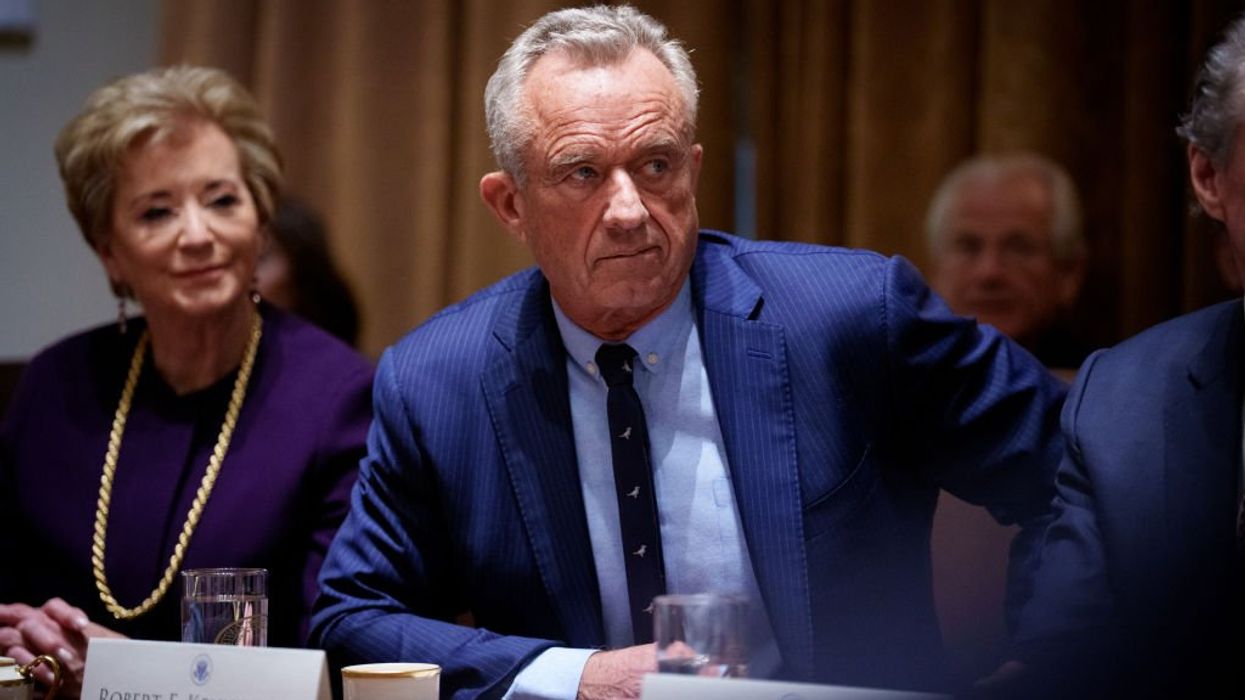Robert F. Kennedy, Jr. has never been afraid to challenge conventional wisdom—sometimes aligning with scientific consensus, often rejecting it.
Now, as Secretary of Health and Human Services, Kennedy has the power to shape national healthcare policy. And many will measure his leadership with one critical question: Can he reverse America’s alarming decline in life expectancy?
For decades, the United States has spent more on healthcare than any other nation, yet health outcomes continue to lag behind global peers. According to the Peterson-KFF Health System Tracker, Americans now live four years less than citizens of other high-income countries. The U.S. premature death rate is nearly double that of comparable nations, a gap that has widened in recent years.
Peterson-KFF data points to three primary drivers for this, which together account for 68% of the gap:
- Chronic disease (32% of the gap)
- Deaths of despair, including those from substance abuse (12%)
- The lingering effects of the COVID-19 pandemic (24%)
Of course, Kennedy can’t address every factor contributing to premature death. Many “social determinants of health” (e.g., income, education, and housing), would require sweeping reforms across multiple government agencies, well beyond the scope of HHS.
But when it comes to direct medical interventions, Kennedy can enact meaningful reforms, ones that directly address the leading causes of premature death:
1. Chronic Disease: America’s Worst Health Crisis
According to the Peterson-KFF report, “About a third (32%) of the difference in premature death between the U.S. and similar countries is due to deaths from cardiovascular diseases, chronic respiratory diseases, and chronic kidney diseases.”
Compared to citizens of peer nations, Americans are 2.5 times more likely to die from diabetes and nearly four times more likely to die from kidney disease. Preventable cardiovascular disease remains the nation’s leading cause of death.
These problems represent system-wide failures in prevention and management. According to CDC data, if every clinician and health system delivered care at the level of today’s top performers, the nation could prevent 30–50% of the complications tied to chronic conditions, including heart attacks, strokes, cancer, and kidney failure.
Kennedy has led in this area, repeatedly emphasizing the urgency of addressing chronic disease in America. During his Senate confirmation hearing, he stated, “We need to refocus [on chronic disease] if we are going to save our country. This is an existential crisis.”
His Make America Healthy Again (MAHA) initiative promotes shifting the healthcare system’s focus from disease intervention to prevention. This plan encourages community-based programs that improve diet, increase physical activity, and expand preventive screenings.
RFK has also advocated for expanding primary care access, a move that’s well-founded by research. Adding 10 primary care doctors to a community increases life expectancy 2.5 times more than adding 10 specialists, according to a Harvard-Stanford study. To that end, he has talked about shifting healthcare dollars from specialists to primary care physicians.
2. Deaths of Despair: A Growing Crisis
Approximately 12% of the U.S. life expectancy gap can be attributed to “deaths of despair,” which include deaths from drugs, suicides, and alcohol consumption. Combined, they account for 160,000 preventable deaths annually, disproportionately affecting rural and underserved communities, where access to mental health care and addiction treatment is more limited.
While some clinicians see these deaths as primarily societal, the Drug Enforcement Administration (DEA) considers substance use disorder treatment a core medical responsibility and requires all physicians to complete eight hours of training to identify and manage patients with these problems.
Kennedy has long been outspoken about addiction treatment reform, shaped in part by his own personal struggles. He has criticized pharmaceutical companies for fueling the opioid epidemic and vowed to address predatory business practices in addiction treatment.
During his Senate confirmation hearing, Kennedy emphasized the role of technology in expanding healthcare access, particularly in underserved areas. He has advocated for the use of artificial intelligence and telemedicine to bring advanced medical care to rural areas, stating that such innovations could provide “concierge care to every American in this country, even remote parts.”
However, significant advances will require FDA approval of new generative AI tools and Congressional action to allow the provision of telemedicine across states, along with guaranteed Medicare funding for these services.
3. COVID-19: Lessons For Future Pandemics
The COVID-19 pandemic led to over 1 million American deaths and a historic drop in U.S. life expectancy. While every nation suffered, the United States was hit particularly hard. As of 2024, the U.S. has regained only half of the lost years, lagging far behind peer countries.
A major driver of the nation’s high mortality rate was widespread vaccine hesitancy. Though COVID-19 vaccines weren’t a flawless solution, they significantly reduced the risk of hospitalization and death. Still, many Americans—distrustful of public health agencies or swayed by misinformation—chose to forgo them, particularly in more conservative states.
To prevent future infectious disease epidemics, Kennedy will need to reconsider his unscientific views on vaccine risks—whether or not he remains uncertain.
During the Texas measles outbreak, he was slow to endorse vaccination as the best solution, though he eventually acknowledged that “vaccines not only protect individual children from measles but also contribute to community immunity.” While his administration recently removed a fake CDC website, spreading vaccine misinformation, Kennedy also appointed a vaccine safety researcher with a history of promoting discredited theories that linked vaccines to autism.
An Imperfect Leader At The Perfect Time
Kennedy has a rare opportunity to improve American longevity and to position the United States as a global healthcare leader.
By expanding preventive care, strengthening primary care access, and supporting evidence-based mental health and addiction treatments, he could reduce chronic disease and deaths of despair. Science-based interventions would also ensure the nation is better prepared to combat infectious disease threats.
However, if Kennedy undermines public trust in health institutions, promotes unproven treatments, or weakens vaccine programs, preventable deaths will rise and U.S. life expectancy will continue to fall.
The health of millions hinges on the path he chooses.




















Trump & Hegseth gave Mark Kelly a huge 2028 gift